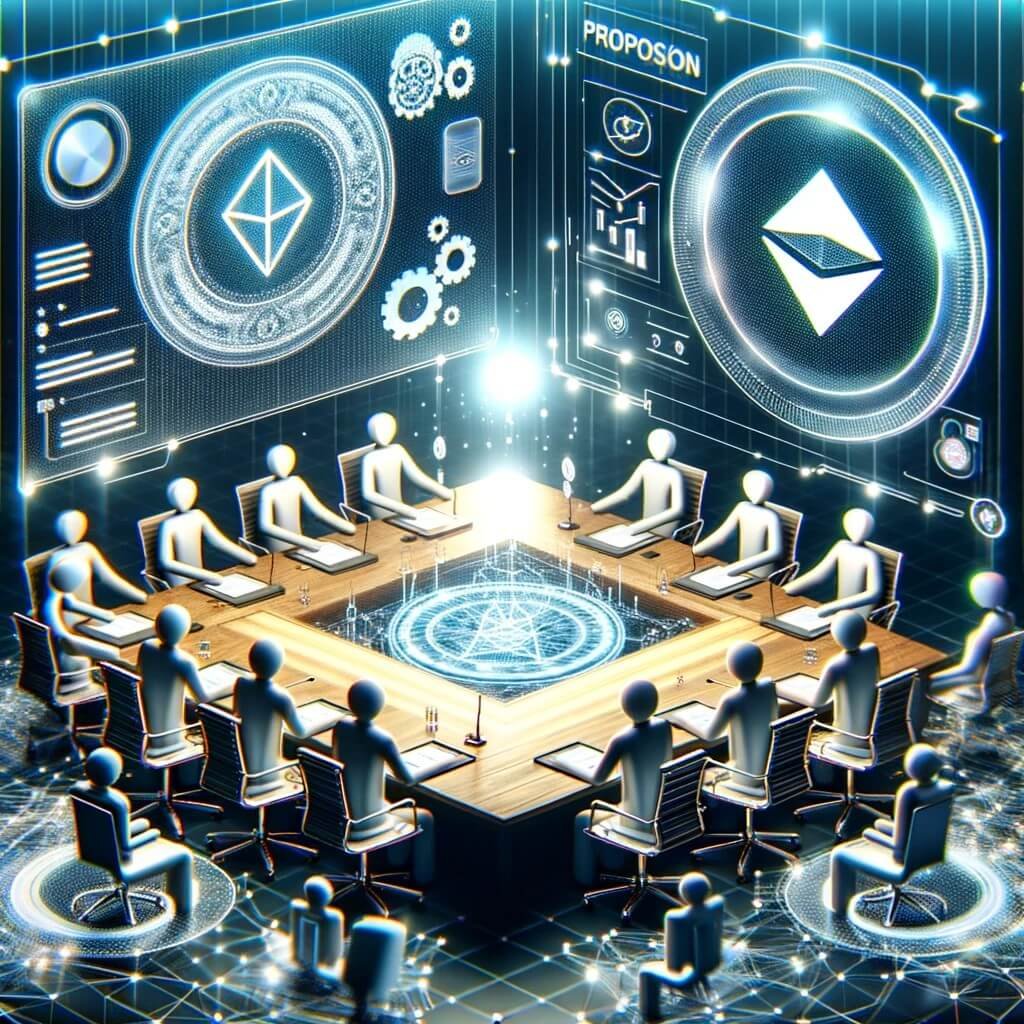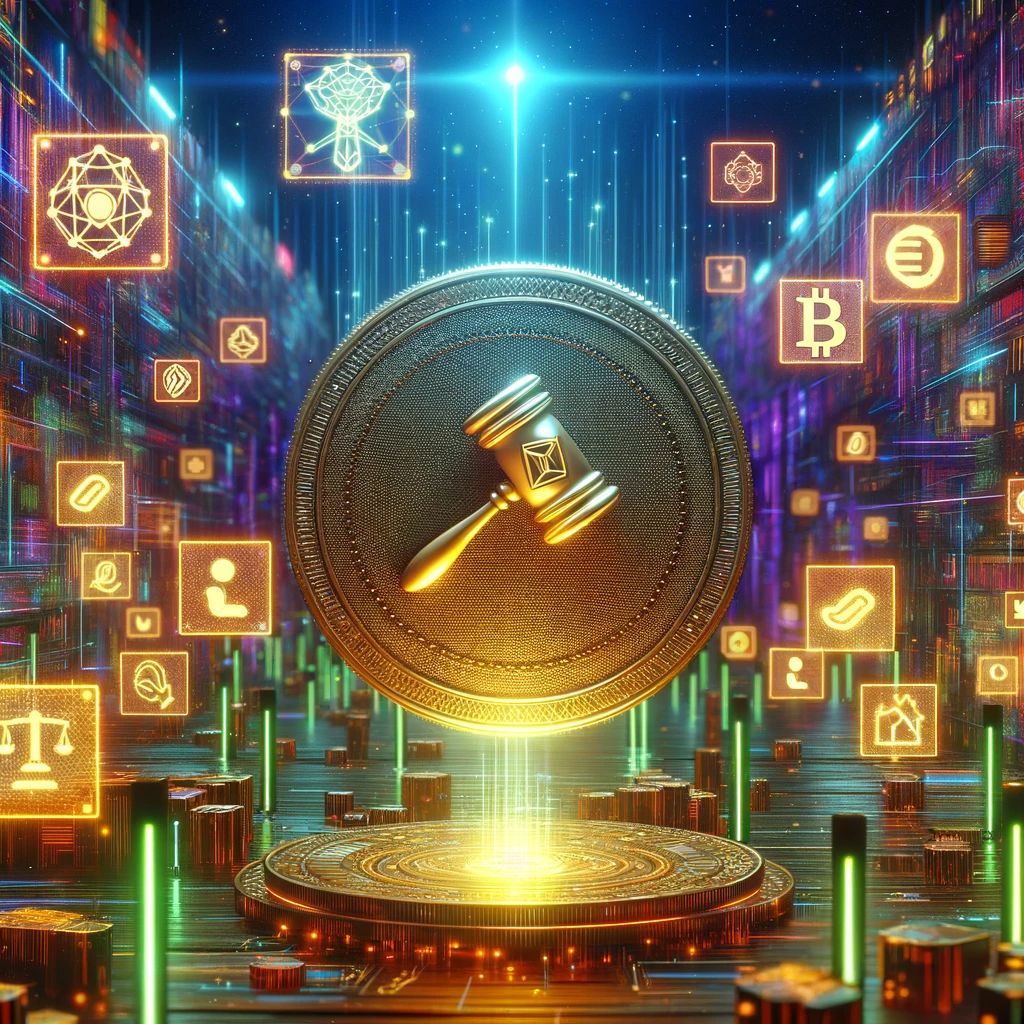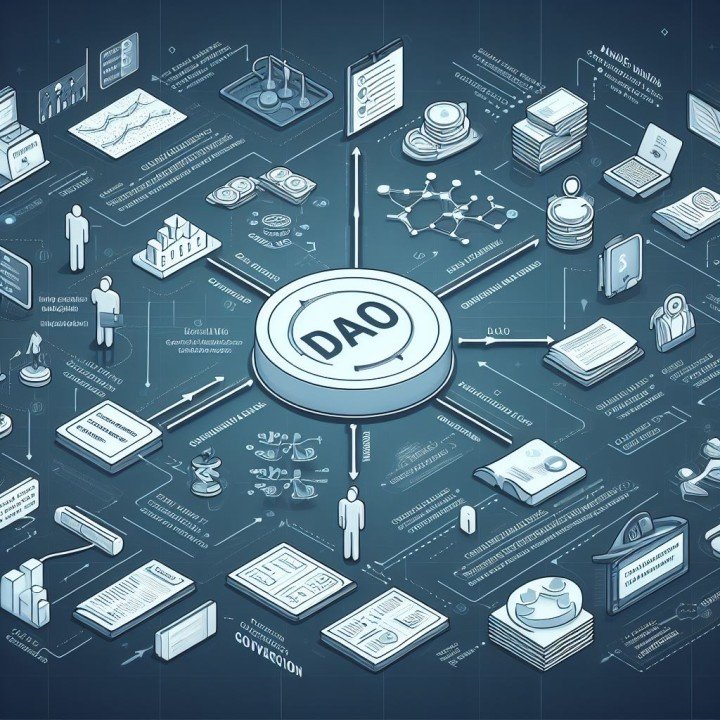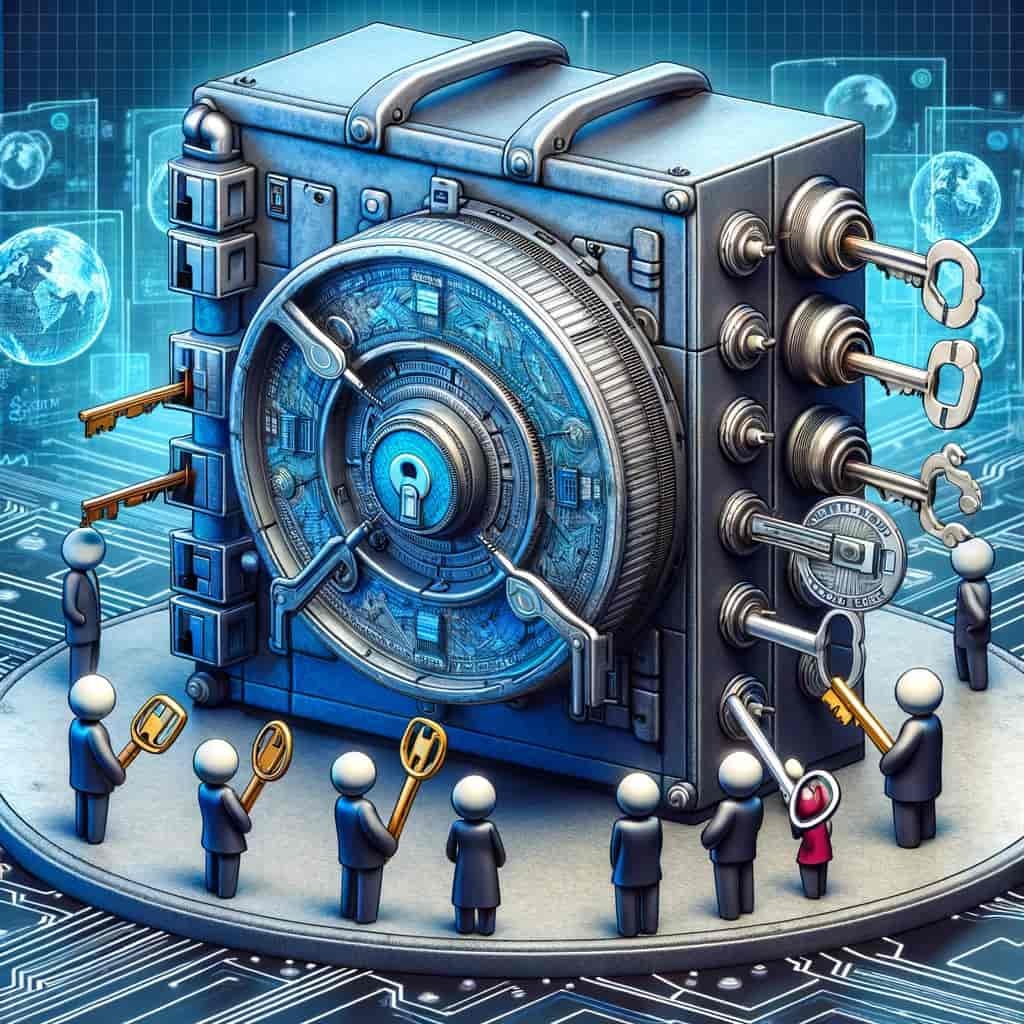DAO's
Decentralized Autonomous Organizations prove large scale organizations do not need to be centrally organised
The Rise of DAO's
Decentralized Autonomous Organizations (DAOs) have emerged as a revolutionary concept in the blockchain space, transforming the way organizations are structured and governed. Unlike traditional organizations, DAOs operate on a decentralized network where decision-making is distributed among members rather than centralized leadership. The concept gained traction with the rise of Ethereum, which enabled smart contracts to automate processes and ensure transparency. DAOs aim to create open, democratic systems where stakeholders have direct control over the organization’s operations, ensuring that the interests of the community are prioritized over those of a select few.
The objectives of DAOs vary depending on their mission, but they generally focus on promoting decentralized governance, transparency, and community participation. DAOs can be used for a wide range of purposes, including managing decentralized finance (DeFi) protocols, funding projects through collective decision-making, and even managing digital art and intellectual property. The rise of DAOs reflects a broader trend towards decentralization in the blockchain world, where trust is placed in code and consensus mechanisms rather than centralized authorities.

The Rise of DAO's

Decentralized Autonomous Organizations (DAOs) have emerged as a revolutionary concept in the blockchain space, transforming the way organizations are structured and governed. Unlike traditional organizations, DAOs operate on a decentralized network where decision-making is distributed among members rather than centralized leadership. The concept gained traction with the rise of Ethereum, which enabled smart contracts to automate processes and ensure transparency. DAOs aim to create open, democratic systems where stakeholders have direct control over the organization’s operations, ensuring that the interests of the community are prioritized over those of a select few.
The objectives of DAOs vary depending on their mission, but they generally focus on promoting decentralized governance, transparency, and community participation. DAOs can be used for a wide range of purposes, including managing decentralized finance (DeFi) protocols, funding projects through collective decision-making, and even managing digital art and intellectual property. The rise of DAOs reflects a broader trend towards decentralization in the blockchain world, where trust is placed in code and consensus mechanisms rather than centralized authorities.
Proposal Systems and Governance Tokens

At the core of every DAO is a proposal system, which allows members to submit ideas or changes for the organization to consider. Governance proposals can cover anything from technical upgrades to how the DAO’s treasury is managed. These proposals are then voted on by members, who use governance tokens to express their preferences. Governance tokens are often distributed based on contributions to the DAO or purchased through the open market, and they represent a member’s voting power within the organization.
On-chain voting, conducted directly on the blockchain, ensures transparency and immutability, but can be costly and slow. Off-chain voting, on the other hand, can be faster and more flexible, but it may lack the transparency of on-chain mechanisms. Some DAOs employ a hybrid approach, where initial discussions and informal votes occur off-chain, followed by formal on-chain voting for final decisions. This combination allows for efficient decision-making while maintaining the integrity and trust that blockchain provides.
Proposal Systems and Governance Tokens

At the core of every DAO is a proposal system, which allows members to submit ideas or changes for the organization to consider. Governance proposals can cover anything from technical upgrades to how the DAO’s treasury is managed. These proposals are then voted on by members, who use governance tokens to express their preferences. Governance tokens are often distributed based on contributions to the DAO or purchased through the open market, and they represent a member’s voting power within the organization.
On-chain voting, conducted directly on the blockchain, ensures transparency and immutability, but can be costly and slow. Off-chain voting, on the other hand, can be faster and more flexible, but it may lack the transparency of on-chain mechanisms. Some DAOs employ a hybrid approach, where initial discussions and informal votes occur off-chain, followed by formal on-chain voting for final decisions. This combination allows for efficient decision-making while maintaining the integrity and trust that blockchain provides.
Quorum, Delegation, and Reputation Systems
A crucial aspect of DAO governance is achieving quorum, the minimum number of votes required for a proposal to be valid. Quorum ensures that decisions are made with sufficient community involvement, preventing a small group of participants from making unilateral decisions. However, reaching quorum can be challenging, especially in large DAOs with passive members. To address this, many DAOs implement delegation of voting, where members can delegate their voting power to trusted individuals or entities who vote on their behalf. This system helps ensure that the organization remains active and decisions are made efficiently.
Reputation systems also play a significant role in DAOs, where members earn reputation points based on their contributions and participation. These systems incentivize active engagement and reward members who consistently contribute to the DAO’s success. Reputation can be tied to voting power or influence within the DAO, ensuring that those who are most invested in the organization have a greater say in its governance. This structure helps create a meritocratic environment, where decisions are driven by those with proven expertise and commitment.

Quorum, Delegation, and Reputation Systems

A crucial aspect of DAO governance is achieving quorum, the minimum number of votes required for a proposal to be valid. Quorum ensures that decisions are made with sufficient community involvement, preventing a small group of participants from making unilateral decisions. However, reaching quorum can be challenging, especially in large DAOs with passive members. To address this, many DAOs implement delegation of voting, where members can delegate their voting power to trusted individuals or entities who vote on their behalf. This system helps ensure that the organization remains active and decisions are made efficiently.
Reputation systems also play a significant role in DAOs, where members earn reputation points based on their contributions and participation. These systems incentivize active engagement and reward members who consistently contribute to the DAO’s success. Reputation can be tied to voting power or influence within the DAO, ensuring that those who are most invested in the organization have a greater say in its governance. This structure helps create a meritocratic environment, where decisions are driven by those with proven expertise and commitment.
Treasury Management and Modular Governance

Treasury management is a critical function in DAOs, as it involves managing the organization’s financial resources in a transparent and decentralized manner. DAOs often use multi-signature (multi-sig) wallets, which require multiple approvals before funds can be spent. This system ensures that no single individual can unilaterally control the organization’s assets, adding a layer of security and trust. Multi-sig wallets are especially important in managing large treasuries, where decisions need to be carefully vetted and approved by multiple stakeholders.
Modular governance allows DAOs to evolve and adapt to changing circumstances by enabling different governance models for different aspects of the organization. For example, a DAO might use one governance model for managing its treasury, another for handling community proposals, and yet another for technical upgrades. This flexibility ensures that the DAO can operate efficiently while addressing the unique needs of each function. Stakeholder participation is essential in this modular approach, as it allows members to engage in the areas they are most passionate about, ensuring that the DAO remains dynamic and responsive to its community.
Treasury Management and Modular Governance

Treasury management is a critical function in DAOs, as it involves managing the organization’s financial resources in a transparent and decentralized manner. DAOs often use multi-signature (multi-sig) wallets, which require multiple approvals before funds can be spent. This system ensures that no single individual can unilaterally control the organization’s assets, adding a layer of security and trust. Multi-sig wallets are especially important in managing large treasuries, where decisions need to be carefully vetted and approved by multiple stakeholders.
Modular governance allows DAOs to evolve and adapt to changing circumstances by enabling different governance models for different aspects of the organization. For example, a DAO might use one governance model for managing its treasury, another for handling community proposals, and yet another for technical upgrades. This flexibility ensures that the DAO can operate efficiently while addressing the unique needs of each function. Stakeholder participation is essential in this modular approach, as it allows members to engage in the areas they are most passionate about, ensuring that the DAO remains dynamic and responsive to its community.
Support us in our mission
The best way to support our mission is to ‘Learn and Tell’ about decentralization. To help us improve our website you can buy the recommend books through affiliate links, watch our content on YouTube or donate Bitcoin on our Lightning wallet address. Learn more below!
Contact us!
Any recommendations about our website, or questions about decentralization or the content provided? Do not hesitate to contact us! You can drop us a message on the contact page or drop us an email at: info@r2decentralization.com